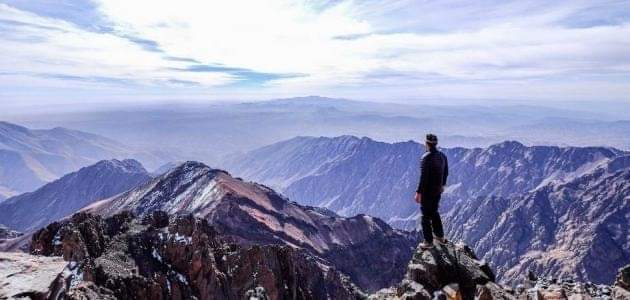
Gnaoua World Music Festival: Marrakech’s Pulse of Rhythm and Adventure
Experience Morocco’s rich culture through the Gnaoua World Music Festival, where hypnotic rhythms and vibrant performances bring the coastal city of Essaouira to life. This dynamic event invites travelers to immerse themselves in music, history, and adventure while navigating an unforgettable festival atmosphere.
Book Accommodations Early
The festival draws crowds from around the globe; securing your riad or hotel well in advance ensures better locations and rates.
Stay Hydrated and Wear a Hat
June days can be hot and sunny in Essaouira. Carry water and protect yourself from the sun during daytime performances and outdoor market explorations.
Pack Comfortable Footwear
Expect to walk on cobblestone streets and uneven terrain between venues, so sturdy shoes will keep you moving without discomfort.
Arrive Early for Popular Shows
The main acts attract large crowds; arriving ahead can secure better viewing spots and avoid long lines in the narrow streets.
Gnaoua World Music Festival: Marrakech’s Pulse of Rhythm and Adventure
Each June, Marrakech hums with an energy that only the Gnaoua World Music Festival can deliver. This event, held in Essaouira just outside the city, stitches tradition and vibrancy into a magnet for music lovers and adventurers alike. The festival invites you to step into a rhythm-driven world where ancient Gnawa melodies dance with jazz, blues, and global beats — all framed by the Atlantic coast’s salty breeze and vibrant market streets.
The venue is more than a stage; it’s a meeting place where Morocco’s diverse cultures and colors collide. Expect sun-drenched squares alive with tambourines, guembri (a three-stringed bass instrument), and hypnotic drum patterns that seem to dare your feet not to move. The crowd pulses as each song crafts new stories, each chorus pulling you deeper into a shared experience fiercely present and electrifying.
Planning your visit to coincide with this four-day festival means embracing both the spectacle and the practical. Essaouira, the nearby city where most events happen, is walkable with narrow lanes and ocean views that provide refreshing breaks between sets. Lodging ranges from modest riads to boutique hotels, so book early to secure your preferred comfort.
Getting there from Marrakech is straightforward—consider the 2.5 to 3-hour drive via bus or private taxi, where the road unfurls alongside changing landscapes, from olive groves to rolling hills. Pack light, wear comfortable shoes for cobbled streets, and bring a hat and water bottle; the Moroccan sun can be insistent, especially midday.
Don’t miss the smaller evening jam sessions outside main stages, where local musicians invite spontaneous collaborations. These moments reveal the festival’s heart: a celebration of connection, culture, and the pull of roots music that refuses to stay still.
To fully experience the festival while staying grounded, balance your days with periodic strolls to the harbor or a slow sip of mint tea in a shaded courtyard. These pauses refresh the senses and prepare you for the next wave of sound and movement. Expect occasional gusts of Atlantic wind boldly sweeping through—nature’s own drumroll reminding you that here, music and environment move hand in hand.
In essence, the Gnaoua World Music Festival is not just an event but an invitation. It challenges you to meet the music head-on, respect its deep roots, and come away with a memory defined by sound, place, and the unshakeable thrill of discovering something fiercely itself.
Nearby Trips
All Adventures
Boat Charters
Water Activities
Adventures near Marrakech, Morocco
Discover the unique and memorable adventures that make Marrakech, Morocco special.
Frequently Asked Questions
Where exactly is the Gnaoua World Music Festival held?
The festival primarily takes place in Essaouira, a coastal town about 2.5 hours west of Marrakech, featuring multiple outdoor stages spread throughout the medina and harbor area.
How can I get to Essaouira from Marrakech?
Accessible by several daily buses, private taxis, or organized tours, the trip takes roughly 2.5 to 3 hours along a well-maintained highway that cuts through olive groves and rural landscapes.
Are tickets required for all festival events?
While many concerts require tickets that should be purchased ahead of time, some jam sessions and street performances are free and open to the public.
What is the best time of day to experience the festival?
Afternoon and evening performances are highlights—afternoon shows offer comfortable warmth and daylight spectacle, while evenings bring cooler air and electric atmospheres under the stars.
Are there any local customs to be aware of during the festival?
Respecting dress codes and local etiquette is important, especially near religious sites. Modest clothing and polite behavior honor Moroccan culture, enhancing your experience.
Can I combine a visit to the festival with other outdoor activities?
Absolutely. Essaouira’s rugged coastlines, nearby argan forests, and the medina’s alleyways offer walking, surfing, and cultural exploration opportunities to balance the festival buzz.
Recommended Gear
Lightweight Walking Shoes
Supportive shoes protect your feet on uneven cobblestones and prevent fatigue during long festival days.
Reusable Water Bottle
Staying hydrated is critical under the Moroccan sun; refill stations around the city are limited during festival hours.
Wide-Brim Hat or Cap
Protects your face and neck from the harsh midday sun while keeping you cool.
Earplugs
Useful for resting after late-night concerts and sheltering your ears during particularly loud performances.
Local Insights
Hidden Gems
- "The hidden hilltop viewpoint near Skala du Port offers stunning panoramic views of the festival stages and Atlantic Ocean."
- "Secret rooftop terraces within the medina where locals watch performances away from the crowds."
Wildlife
- "Seaside gulls and occasional dolphin sightings in the bay challenge visitors to look beyond the music."
- "Argan trees surrounding Essaouira support native goats often seen climbing their branches."
History
"The Gnaoua tradition originates from sub-Saharan African spiritual music brought centuries ago, blending Moroccan Berber, Arab, and African influences to create an enduring cultural identity."
